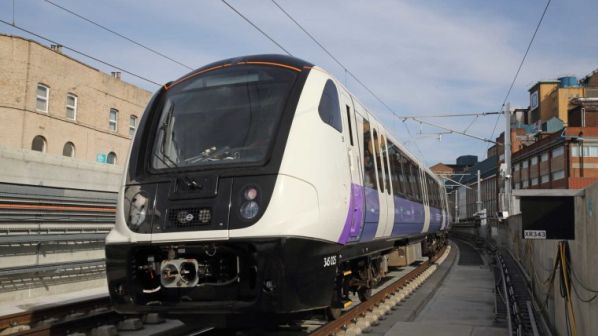The 21km core underground section of Crossrail through central London from Paddington to Stratford and Abbey Wood was due to open in December 2018 but has been delayed indefinitely, while costs are steadily escalating. The Department for Transport (DfT) agreed to provide an additional £590m in July 2018, followed by a further £2.15bn in December 2018. This increased the total cost of the project by 19% from the £14.8bn agreed in 2010 to £17.6bn. However, Crossrail has been unable to provide a new opening date for the scheme.
“We are not satisfied by the DfT’s vague response to our questioning on how it protected taxpayers’ money when overseeing delivery of the programme,” says the PAC report. “We are not convinced that new services will start to run in 2020 as now hoped, nor that the additional £2.8bn of funding provided will be enough.”
“It is clear that the delivery deadline of December 2018 had been unrealistic for some time,” says the PAC chair, Ms Meg Hillier. “But the DfT, Transport for London (TfL) and Crossrail Ltd continued to put a positive face on the programme long after mounting evidence should have prompted changes. Wishful thinking is no basis for spending public money and there remain serious risks to delivering this programme, with a revised schedule and costings for completing the work still to be agreed.
“It is unacceptable that parliament and the public still do not know the root causes of the failures that beset this project. Nor will we accept the DfT and Crossrail Ltd’s description of these serious problems as systems failures.”
Key findings
The PAC lists six key findings and actions it wants the DfT to take regarding Crossrail:
Finding 1: the DfT, TfL and Crossrail’s fixation on a delivery deadline of December 2018 led to warning signs that the programme was in trouble being missed or ignored.
Action: explain within six months the steps the DfT is taking to encourage a culture of openness and transparency and how it will ensure that project teams reconsider completion dates for major programmes at key points through the programme.
Finding 2: it is unacceptable that the DfT and Crossrail are unable to identify the root causes of the programme unravelling so quickly and so disastrously.
Action: consider the root causes of cost increases and delays and set out by June 2019 lessons learned and their impact on the DfT’s approach to the project.
Finding 3: the unacceptably laissez-faire attitude by the DfT and Crossrail to costs potentially rising by nearly £3bn.
Action: the DfT should set out how it considered the value for money for taxpayers when it agreed to increased funding in 2018.
Finding 4: the programme is at risk from further cost increases and delays.
Action: after reaching agreement with Crossrail, the DfT must outline how it has assured itself that the revised schedule and cost to completion are robust; the DfT should also detail how the £2.8bn of extra funding will be allocated.
Finding 5: weak governance by the DfT and Crossrail characterised by a catalogue of failures to adequately oversee performance.
Action: the DfT must explain by July 2019 how it has changed its contractual relationship with Crossrail so that it can properly exercise oversight and hold Crossrail to account for its performance managing the programme to completion.
Finding 6: the DfT and Crossrail have been unwilling to accept their responsibilities for the significant delays and cost overruns.
Action: the DfT should clearly articulate by the end of April 2019 what it, TfL and Crossrail are responsible and accountable for and what the consequences have been for those senior officials in positions of accountability and responsibility for failures on the programme.
Trains in store
A few of the class 345 Aventra EMUs supplied by Bombardier that will be deployed on the Elizabeth Line are already in service on the surface sections between Liverpool Street and Shenfield, and Paddington and Hayes & Harlington. Limited testing is underway on the central section, but most of the fleet is in store.

